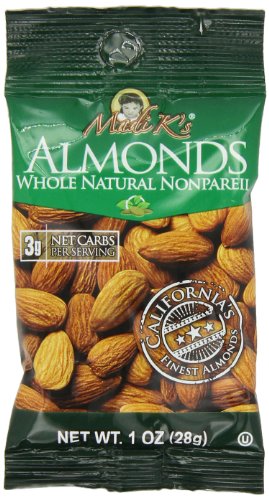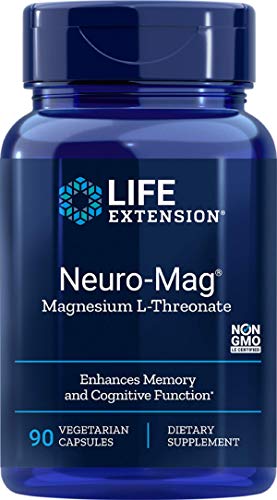Little things you do every day can add up and have a surprisingly big impact on your mental health.
Because a healthy cognitive system is essential to regulating mood, and certain nutrients have a profound impact on maintaining normal brain function, eating the right foods can improve your mood and energy levels.
Researchers have studied the association between foods and the brain and identified nutrients that can help combat depression and boost mood.
Let’s take a look at a few of those nutrients.
Magnesium
 Madi K’s Whole N...
Buy New $25.63 ($0.53 / Ounce)
(as of 12:25 UTC - Details)
Madi K’s Whole N...
Buy New $25.63 ($0.53 / Ounce)
(as of 12:25 UTC - Details)
This mineral is needed for more than 300 biochemical reactions in the body, including breaking down glucose into energy. It supports a healthy immune system, prevents inflammation associated with certain cancers, boosts heart health, and could even cut your risk for a heart attack. Studies found that the mineral helps ward off depression and migraines.
Magnesium has been found to function in a similar manner as lithium, which is often prescribed for bipolar disorder as a mood stabilizer.
In a study done at the Department of Agriculture’s Human Nutrition Research Center in Grand Forks, N.D., women with magnesium deficiencies had higher heart rates and required more oxygen to do physical tasks than they did after their magnesium levels were restored.
Quick and easy sources:
- almonds, hazelnuts, cashews, pumpkin seeds (1/2 cup provides almost 100% of your daily requirement), sunflower seeds, Brazil nuts, pine nuts, flaxseed, and pecans (you can make a trail mix with a combination of these)
- dark chocolate (add chopped pieces to trail mix)
- bananas, strawberries, blackberries, grapefruit, and figs
- yogurt
Calcium
Calcium is the most abundant mineral in the body – not only does it play an important role in maintaining strong bones and teeth, but it is also required for proper functioning of the heart, muscles, and nervous system. Calcium also helps reduce the risk of developing Type 2
 Life Extension Neuro-M...
Buy New $23.25 ($0.26 / Count)
(as of 08:00 UTC - Details)
diabetes. Low levels of calcium may play a role in premenstrual-syndrome-related depression.
Life Extension Neuro-M...
Buy New $23.25 ($0.26 / Count)
(as of 08:00 UTC - Details)
diabetes. Low levels of calcium may play a role in premenstrual-syndrome-related depression.
Note: It IS possible to take too much calcium. According to WebMD, the amount of calcium you get from ALL sources (food and supplements) should not exceed 2,500 mg if you are 19 – 50 years of age, and 2,000 mg if you are 51 or older.
Some studies suggest that taking too much calcium can cause mood disorders, so don’t overdo it.
Quick and easy sources:
- yogurt
- cheese
- milk
- dried figs
- leafy greens
- almonds
- oranges
- sesame seeds
- seaweed
- broccoli
Vitamin D
 NOW Supplements, Chrom...
Buy New $9.12
(as of 10:45 UTC - Details)
NOW Supplements, Chrom...
Buy New $9.12
(as of 10:45 UTC - Details)
Often called “the sunshine vitamin,” vitamin D is unique in that it is a vitamin AND a hormone your body can make with help from the sun. But despite the ability to get vitamin D from food and the sun, an estimated 40%-75% of people are deficient.
Paired with calcium, vitamin D can helps keep bones strong.
Research suggests that low levels of vitamin D are associated with mood disorders and depression.
Most often, low levels of vitamin D are the result of indoor lifestyles, limited sun exposure, and inadequate intake of vitamin-D-rich foods.
Like calcium, it IS possible to take too much vitamin D. Your healthcare practitioner can give you a simple blood test to see if you are deficient.
Quick and easy sources:
- salmon
- tuna
- mackerel
- eggs
- cheese
- fortified foods like orange juice and milk
Some vitamin D researchers have found that somewhere between 5–30 minutes of sun exposure between 10 AM and 3 PM at least twice a week to the face, arms, legs, or back without sunscreen usually leads to sufficient vitamin D synthesis. Indoor light therapy can help, too.
Chromium
A trace mineral found in small amounts in the body, chromium plays an important role in increasing the brain’s levels of serotonin, norepinephrine, and melatonin, which help regulate emotion and mood. Because chromium works directly with the brain’s mood regulators, it’s been found to be an effective treatment for depression.
We don’t require a lot of chromium to avoid deficiency.
Quick and easy sources:
- broccoli
- grape juice
- potatoes
- garlic
- basil
- orange juice
- turkey breast
- apples
- bananas
- green beans





